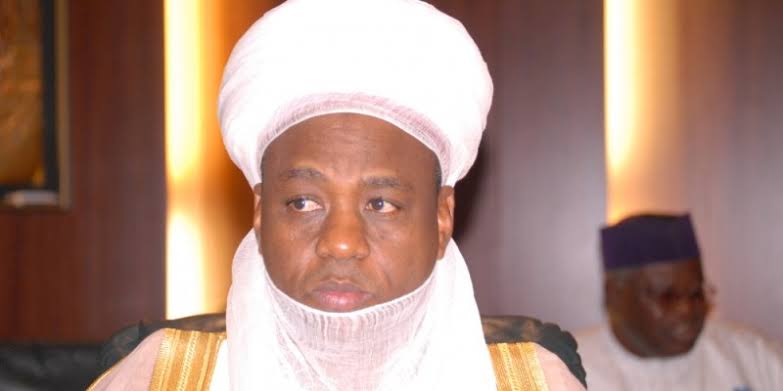Claims of Fulani’s ownership of Nigeria reckless — Sultan

THE Sultan of Sokoto, Alhaji Muhammad Sa’ad Abubakar, has disowned a Fulani group’s claim that the Fulani own Nigeria from Sokoto to the Atlantic Ocean.
He also said no one can Islamise or Christianise Nigeria.
The group, christened Fulani Nationality Movement (FUNAM), had claimed that Fulanis owned Nigeria and gave a notice of the planned conquest of the entire country.
But Sultan Abubakar, on Friday, at the celebration of the first annual Plateau State Forgiveness and Reconciliation Day, organised by the Interfaith Mediation Centre, in conjunction with the Plateau State Peace Building Agency, described the group’s statement as reckless.
According to him, the founder of the Sokoto Caliphate, the late Usman dan Fodio, never said anything about the Fulani owning Nigeria during his lifetime or in his books.
He said: “I am the leader of the Usman dan Fodio dynasty and I have never seen anywhere in the hundreds of books that Usman dan Fodio wrote where he said that Nigeria belongs to the Fulanis. What he wrote about was the role of Islam in leadership, governance, etc. His books don’t mention the conquest of any land or claim ownership of any territory.
“People make comments that jihad is meant to Islamise countries but I say no, dan Fodio never came to Islamise any country, he only preached against bad government.
“That fake write-up was by those who don’t want peace in this country and we have denounced that. I am the national patron of the Miyetti Allah Cattle Breeders Association [MACBAN]. It [the association] has been in existence for 44 years. There are two other organisations that I know but others, I don’t know them. Please, verify from us before you put blame on us.
“I am a proud Fulani man and if I come back again to this world, I would like to be Fulani again. There is nothing wrong with that but to pin every problem on the Fulani is not ideal.”
He said not all the people involved in kidnapping, banditry and other crimes are from the Fulani stock or are members of MACBAN.
“They don’t belong to Miyetti Allah Cattle Breeders Association. They are criminals. I don’t know why security agencies allow them to be what they are. It is the responsibility of the security agencies, not mine. There are Fulani criminals just as there are criminal elements among the Berom, Yoruba, Igbo and other tribes in the country. Let us stop name calling,” he stated.
On the claim that there are secret moves to Islamise Nigeria, the Sultan said it is not possible for anybody or group, Christian or Muslim, to do that.
“It is not possible for anybody to Islamise or Christianise Nigeria. It is not possible; hundred per cent impossible. But we still have leaders who use their privileged positions either in the church or mosque to say many bad things and nothing is done to them. They say things with impunity but never get punished,” he said.
According to him, such religious leaders must be questioned and, if found guilty, punished accordingly.
He said Islam and Christianity preach peace and the leaders of the two religions must also preach peace.
In his address, the Plateau State governor, Simon Lalong, said his administration would continue to collaborate with security agencies in dealing with criminals and evil persons and groups that appear determined to cause havoc in the state, as witnessed in the last killings in Mangu and Bokkos local government areas.
He said the duty of every good leader is to bridge gaps and reduce the factors that trigger mistrust, hatred and bigotry among ethnic nationalities and religious adherents.
According to him, this can only be possible if there is genuine commitment to truth and justice and faithfulness to the oath of office and the constitution of the Federal Republic of Nigeria, especially by those who are elected to serve the people.
He said: “We must not always exploit the fault lines of politics, religion and ethnicity which can easily make us derail and create disharmony among the people. If we do justice to all, irrespective of differences, there will be peace and progress. Anything contrary will make us slide deeper into chaos.
“Another area where leadership and good governance needs to be critically looked at is the management of public resources in a prudent, accountable and equitable manner. This will facilitate the creation of jobs and economic opportunities as well as reduce crime.” (Nigerian Tribune)

